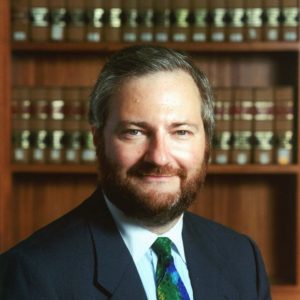CURRENT MONTH (May 2022)
Ethics and Professional Responsibility
New Ethics Opinion Seeks to Clarify Law Firm Marketing and Client Solicitation
Direct and indirect solicitation of clients is subject to limitations prescribed by the Model Rules of Professional Conduct. A recent ABA ethics opinion, Formal Opinion 501, explored some of the implications of Model Rules 7.3 (governing direct contact with prospective clients), 5.3 (detailing responsibilities regarding nonlawyer assistance), and 8.4 (enumerating instances of professional misconduct that can subject a lawyer to discipline).
In thinking about these rules, analysis should begin with the ukase in Model Rule 7.3(b) against “solicitation” via “live person-to-person contact” where the “motive” of the solicitation is the lawyer’s “pecuniary gain.” “Live person-to-person contact,” as elaborated in Comment [2] to that rule, includes “in-person, face-to-face, live telephone and other real-time visual or auditory person-to-person communications where the person is subject to a direct personal encounter without time for reflection” but excludes “chat rooms, text messages or other written communications that recipients may easily disregard.”
“Solicitation” is defined in Model Rule 7.3(a) as a
communication initiated by or on behalf of a lawyer or law firm that is directed to a specific person the lawyer knows or reasonably should know needs legal services in a particular matter and that offers to provide, or reasonably can be understood as offering to provide, legal services for that matter.
This definition was added by the 2018 amendments to Part 7 of the Model Rules, which also incorporated some limited exceptions to the general Rule 7.3(b) prohibition. Thus solicitation is permitted where the person contacted is (1) a lawyer; (2) one who has a family, close personal, or prior business or professional relationship with the lawyer or law firm; or (3) routinely uses for business purposes the type of legal services offered by the lawyer. These exceptions are disallowed, however, under Model Rule 7.3(c) if the target of the solicitation has made known to the lawyer a desire not to be solicited by the lawyer or the solicitation involves coercion, duress, or harassment.
Notwithstanding the intent of the 2018 amendments to provide clarity in this area, Opinion 501 concluded that “ambiguity remains concerning a lawyer’s ethical responsibility for the lawyer’s actions and for the actions of others who engage in live, person-to-person solicitation with specific individuals.” Specifically, these “others” may include employees of the lawyer or law firm, professional marketing firms, existing clients, former clients, friends and family of the lawyer, and even professional colleagues such as bankers, real estate agents, and accountants (but only in the context of direct, in-person solicitations). It is in this context that the opinion addressed the implications for lawyer misconduct under Rule 8.4(a) where a lawyer caused these “others” to engage on the lawyer’s behalf in prohibited in-person solicitations and for supervisory responsibilities under Rule 5.3 with respect to paralegals and other nonlawyers working for the lawyer or law firm. (Think of the Danny DeVito character in the film version of John Grisham’s The Rainmaker).
Formal Opinion 501 explores the application of these rules through consideration of four hypothetical situations:
- A lawyer calls individuals on a sheriff’s list of recent arrestees and offers to provide general legal services.
- A lawyer pays a marketing firm a monthly fee to generate leads for mass tort cases.
- A law firm paralegal hands out the firm’s card to injured people in ambulances while working a second job as a paramedic (and is eligible for bonuses for bringing in this business).
- A lawyer “asks a personal friend or colleague who is a banker to provide the lawyer’s name and contact information to any customer or employee that the banker thinks might need an estate plan.”
The first three, the opinion concludes, violate the solicitation rules, but the fourth does not because no particular individual is being targeted and the lawyer exercises no control (contractual, employment, or otherwise) over the banker’s conduct.
As always, it is important to consult the rules in one’s own jurisdiction. The analysis in Formal Opinion 501 may not apply across the board, for example, to lawyers in Ohio, as that State’s version of Rule 7.3 did not adopt the Model Rule’s blackletter definition of “solicitation” and limits the concept, in a comment, to communications initiated by the lawyer. Furthermore, in terms disallowing the Rule 7.3(c) exceptions, some state versions (like Connecticut’s) go further by adding to coercion, duress, or harassment “fraud, over-reaching, . . . intimidation or undue influence” and by vitiating the exceptions where the “physical, emotional or mental state of the person makes it unlikely that the person would exercise reasonable judgment in employing a lawyer.”
Formal Opinion 501 constitutes a useful admonition to supervising attorneys to ensure that anyone they employ, contract with, or otherwise associate with who promotes or recommends lawyers’ services fully understands, and acts in accordance with, the limitations on in-person solicitation in the Rules of Professional Conduct.




